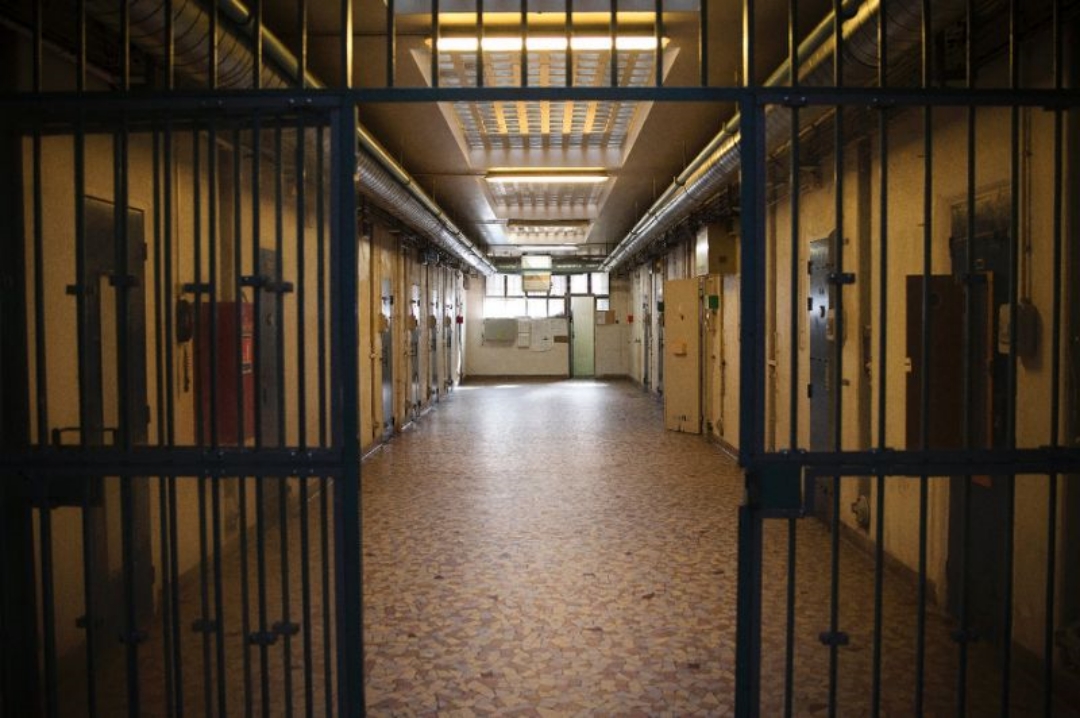ADVERTISE HERE
In our remote village located along the banks of a stony stream at the base of a forested mountain in Serian District (now Serian Division), about 40 miles from Kuching, there once lived a man who was deeply afraid of cemeteries. His fear coloured everything he did and thought.
The first time I heard about the man and his phobia was from an older cousin, who claimed to have heard it from his parents and an uncle. It was around 1963, and I was in Primary 4 at our village’s mission school. I didn’t believe my cousin then as I couldn’t fathom adults being as fearful as children. I assumed adults were naturally brave, having seen my father handling essential activities alone or with friends at various times of the day or night.
Our cemetery is adjacent to the village’s primary school, and while I have never feared it, I can’t say I enjoy being there either. As a pupil, from the time I was 10 to 12 years old, I used to join work parties tasked with cutting grass in and around the cemetery grounds. Every time I was there, I felt a swirl of emotions that I struggled to articulate. Most often, my thoughts wandered to the concept of death, a topic I only superficially understood as the end of life.
In his sermon one Sunday morning, our village priest called the cemetery a field of memories.
“It is not just a burial ground but a place where memories of loved ones are preserved and honoured,” he said.
Unfortunately, Samu didn’t see it that way. What happened to him began before I was born, my parents said. By 1963, when I turned ten, his behaviour was no longer a secret in our close-knit community.
I learned most about Samu from his admissions during conversations with direct family members and close friends, which spread over time through casual conversations or inadvertent social interactions. He liked telling stories and was good at it, unashamed to admit his fear, figuring he wasn’t unique among men. Others had their fears. It was amazing to hear him talk about his fear — how he felt and what he thought he saw during moments of panic.
Samu’s approach to his fear was a delicate dance of avoidance and anxiety. He meticulously planned his routes to avoid the village cemetery, or any other burial grounds, such as one abandoned by our ancestors on a nearby mountain. But fate has a way of testing even the most cautious souls and one day, circumstances conspired against him.
A memory lapse caused Samu to return late from his farm. He could have taken a detour, but there wasn’t enough daylight left for the longer route. He had to take the more direct path past the cemetery.
Unbeknownst to me and my little brother (Little B), we were slightly behind Samu on the same path, heading back to the village after spending the weekend on our paddy farm with our parents and younger siblings. We stayed by ourselves in the village during the week for school. Reluctant to leave our family, we delayed our departure, and by the time we started walking, the sun had set. We couldn’t run due to our weighty rattan backpacks, so we kept to a fast jog, hoping to reach the village before it became pitch dark.
We soon saw a man’s silhouette ahead of us. Calling out, we realised it was Samu, which surprised me because I knew he would have to pass by the cemetery. Samu paused and waited for us to catch up. He was extremely glad to see us, and I understood why. It didn’t matter that we were little boys; as long as he had company, everything was okay.
Night had fallen as we approached the burial ground and I thought about Samu’s past accounts of his fear. As he walked between us, ensuring he was neither in front nor behind, I imagined his heart racing, panic surging through his veins.
The cemetery was not large, probably 50 metres square, but in his eyes, it seemed to stretch endlessly, a gloomy landscape dotted with ageing headstones and grave markers. Most of the markers were hardwood crosses, which, in semi-darkness, looked like a group of silent people with outstretched arms. Gnarled trees along the perimeters cast dancing shadows upon the silent graves.
As we passed, Samu kept his eyes riveted to the path, pretending the cemetery wasn’t beside him. A few times, I heard his breath catch in his throat.
I glanced at the cemetery, its weathered and neglected appearance starkly visible in the faint glow of the sky. The graves bore the marks of time and the elements, with inscriptions on the headstones faded to mere remnants on cold surfaces.
The silence within the cemetery felt tangible, broken only by distant rustling leaves and the occasional caw of a solitary bird perched on a nearby tree. The stillness hung heavy as if the spirits of the departed watched with bated breath.
 Old village cemetery
Old village cemetery Overgrown grass and flower shrubs along the perimeters added to its macabre aura. Long blades of grass swayed in the wind, reminiscent of skeletal fingers reaching from the earth.
Suddenly, pandemonium erupted behind us as two people shouted and screamed, speeding by in the dark.
“Run! Run!” they screamed, as if the devil was after them.
Little B reacted faster than me; when I took off, he was already at least ten meters ahead. When we reached the school football field, about a hundred meters from the cemetery, we paused, too exhausted to continue.
Despite gasping for breath, I turned around, expecting to see Samu. He was not in sight. My survival instinct demanded I run away with Little B, but a sense of pity made me turn back. I was glad I did, for Samu had fallen into a shallow ditch along the edge of the football field. It was too dark to see much, but I heard him groaning and cursing. Dripping wet, he scrambled up the bank, and I walked with him towards the village until he was far enough from the cemetery.
Amid life’s twists and turns, Samu and I didn’t cross paths again for many years. The following year, I left for a boarding high school in town, returning home only for the holidays. Life happened, and I even forgot about the fearful man — until one day upon my return from Kuching I went to buy a packet of tobacco for my father from a shop at the village road junction.
I hadn’t seen Samu in so long that I thought he had passed away. But there he was, a frail old man, holding a packet of salted fish in one hand and a packet of sugar in the other. When I lightly tapped his shoulder, he looked at me for several moments before recognising me. His eyes lit up, and he grinned.
I paid for his items, took him by the arm, and led him to a coffee shop next door where we talked for more than an hour, catching up on the years we missed. He said he heard about me from some village people and wondered why I didn’t return as often as others.
Our conversation inevitably returned to that fateful night. To my surprise, Samu didn’t need prompting to recall it. As a good storyteller, he relived the event vividly, and I listened.
Oddly, he chuckled when he admitted his imagination ran wild before we reached the cemetery that night. While contemplating the bones buried there, he envisioned ghostly apparitions emerging from the graves, their spectral forms rising to taunt and torment him. The thought of the darkness beneath the soil ignited his deepest fears, planting vivid images in his mind of being trapped and buried alive.
To Samu, the cemetery was a stark reminder of mortality and the inevitability of death. It embodied his darkest fears, a haunting symbol of life’s fragility.
At the end of his confession, I asked if anything had changed since that night.
“I don’t fear the cemetery anymore,” he said.
“What!? That’s great! What happened?”
“It happened after my wife passed away,” he said.
“How?”
“She fell seriously ill, and I looked after her till she passed away by my side. Nobody was at home that day. I looked at her, touched her face, and realised for the first time that I had no fear of death.”
“I see. Go on.”
“After the funeral, I kept going to her grave to water the flowers and weed the grass. After a few weeks, I realised I had lost my fear.”
Nelson Mandela

‘I learned that courage was not the absence of fear, but the triumph over it. The brave man is not he who does not feel afraid, but he who conquers that fear.’ – Nelson Mandela (1918-2013), a South African anti-apartheid revolutionary, political leader, and philanthropist who served as the first black President of South Africa from 1994 to 1999.
The views expressed here are those of the writer and do not necessarily represent the views of the Sarawak Tribune.









 English (US) ·
English (US) ·